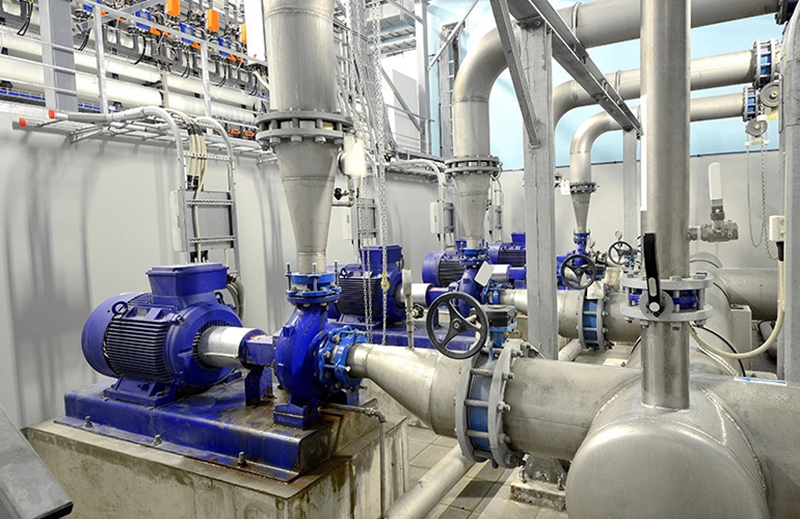COMMON CHEMICAL PUMP APPLICATIONS: INDUSTRIES AND USES
The purpose of a chemical pump is to handle and move hazardous items such as chemicals and corrosive fluids. These pumps are designed to withstand extreme chemical environments. Chemical pumps find widespread use in the manufacturing, water treatment, pharmaceutical, and agricultural industries. Below is a detailed look into these applications:
Chemical synthesis
Chemical processing companies frequently utilize chemical pumps to move chemicals and other fluids during manufacturing. Acids, alkalis, and solvents need specific pumps to handle their corrosive qualities.
Therefore, chemical pumps transfer liquids or chemicals from one location to another by applying pressure. Depending on the chemical pump utilized, multiple ways exist to create pressure. Most chemical pumps from Pumpbiz generate the pressure required to transfer the chemical using rotors or impellers.
Mining industry
Mining chemicals are made from raw minerals like lead, uranium, sulfuric acid, nitric acid, mercury, and cyanide. Gold is extracted from ore using mercury and cyanide, and copper oxide minerals are leached using sulfuric acid. Due to their extreme toxicity, the byproducts of these chemical processes must be confined and removed off-site for disposal.
Chemical pumps are utilized in mines to manage corrosive fluids and process chemicals. They must be sturdy, impervious to leaks, and hard enough to function continuously without fail.
Pharmaceutical uses
Chemical pumps are used extensively in pharmaceutical labs and industry and are vital to many operations. An extensive range of chemical liquids, including caustic liquids, high-purity chemicals, organic solvents, and liquids with unique qualities, can be transferred using these pumps.
Chemical pumps are made and sealed to guarantee that liquids handled in chemical environments—which may be flammable, toxic, or corrosive—don’t spill during the transfer process. This ensures the safety of both the environment and the operators using them.
Oil and gas industries
Chemicals are essential to oil field operations for a variety of reasons. Some serve to preserve the drilling environment, while others maintain the equipment to prolong its useful life. For example, sodium silicate is used in drilling operations because of its superior bonding qualities.
The purpose of its usage in drilling mud is to seal porous formations, thereby keeping the wellbore stable and preventing drilling mud from escaping. The oil and gas sector uses chemical pumps to move chemicals like acids, alkalis, and drilling fluids during drilling and production.
Water treatment
Chemical injection pumps are becoming a standard component of most contemporary water treatment facilities’ operations. They make it possible to precisely and carefully dose chemicals for various uses, such as adding specialty chemicals, cleaning, pH correction, flocculation, and coagulation.
Agricultural uses
Using a small chemical metering pump, you can precisely inject phosphorus, nitrogen, and other chemicals into a bigger irrigation system. Chemical metering is also an option for smaller-scale systems, such as drop irrigation, although it requires more accuracy. Chemical pumps, often utilized in orchards, also help with fertilization. Fertilization is strictly controlled and needs to be applied precisely to meet the soil’s pH level and other nutrient requirements of the plants.
Conclusion
Many industries employ chemical pumps to move fluids, including acids, alkalis, and corrosives. The fluid being transferred, the required flow rate, the required pressure, and the application environment all play a role in selecting the best chemical pump.
















